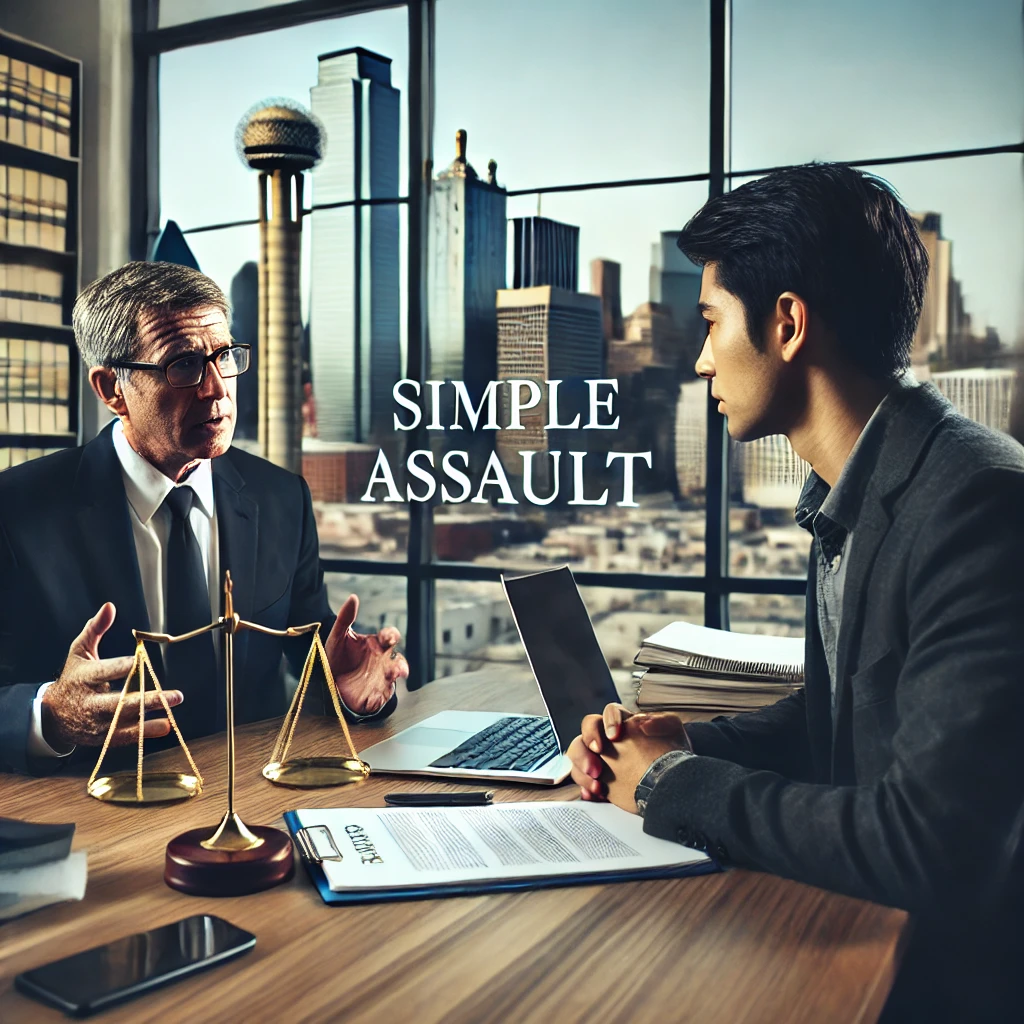Dallas Simple Assault Defense Lawyer
Bilingual Legal Expertise. Se Habla Español.
Victoria Barr Law provides expert legal defense to protect your rights and your future.
Facing simple assault charges? Our Dallas attorneys provide aggressive defense strategies to safeguard your rights and future.
Call Us: 214-799-3961
Call Now for Skilled Legal Defense
Our attorneys are ready to defend your case. Contact us today for a personalized legal consultation.
Related Violent Crimes Defense
Simple Assault Defense in Dallas
Charged with simple assault in Dallas? Victoria Barr Law provides aggressive legal defense to protect your rights and future.Understanding Simple Assault Charges
Simple assault in Texas is defined as intentionally causing bodily injury, threatening harm, or making offensive physical contact with another person. These charges can arise from misunderstandings or minor disputes.Potential Penalties
- Class C Misdemeanor: Fines up to $500 for offensive contact without injury.
- Class B Misdemeanor: Up to 180 days in jail and fines up to $2,000 for threats of harm.
- Class A Misdemeanor: Up to 1 year in jail and fines up to $4,000 for causing bodily injury.
How We Can Help
- Examining evidence and witness testimony for inconsistencies.
- Negotiating with prosecutors to reduce or dismiss charges.
- Building a defense based on lack of intent or self-defense.
How to Begin Your Defense
- Schedule a Consultation: Speak with our legal team to discuss your case details.
- Develop a Defense Strategy: We tailor a legal plan based on your unique circumstances.
- Prepare Your Case: Our attorneys will gather evidence and build a compelling defense.
- Representation in Court: We will advocate fiercely to achieve the best possible outcome.
Client Success Stories
“Victoria Barr Law helped me resolve my simple assault charge with minimal consequences.” – Chris P.
“Their defense strategy was excellent, and they kept me informed throughout the process.” – Amanda G.
Schedule Your Legal Consultation Online
Get started with personalized legal support by scheduling a consultation online.
Frequently Asked Questions About Simple Assault
Simple assault is defined as intentionally, knowingly, or recklessly causing bodily injury to another person, threatening someone with imminent harm, or making physical contact that is considered offensive or provocative.
Penalties for Simple Assault vary depending on the circumstances. It is usually a Class A misdemeanor punishable by up to 1 year in jail and a fine of up to $4,000. If the assault involves threats or offensive contact, it may be a Class C misdemeanor with a fine up to $500.
Simple Assault typically involves minor injuries, threats, or offensive contact, while Aggravated Assault involves serious bodily injury or the use of a deadly weapon, making it a more severe offense.
Yes, Simple Assault can be elevated to a felony if the victim is a public servant, emergency worker, or if the defendant has prior assault convictions. Felony charges carry harsher penalties, including prison time.
Yes, self-defense is a valid defense if you can prove that you acted to protect yourself or another person from imminent harm. An experienced attorney can help you build a strong self-defense case.
Evidence may include witness testimony, medical reports, police reports, video recordings, and physical evidence such as injuries. Prosecutors use this to establish intent and harm caused by the defendant.
Yes, charges may be dismissed if there is insufficient evidence, procedural errors, or if the alleged victim refuses to cooperate. A criminal defense attorney can help explore dismissal options.
A conviction for Simple Assault can result in a permanent criminal record, which may affect employment opportunities, housing applications, and professional licensing. In some cases, expungement may be possible.
If accused, avoid making statements to law enforcement without consulting a criminal defense attorney. Anything you say can be used against you. An attorney can help protect your rights and build a defense.
A defense attorney can evaluate the evidence, challenge the prosecution’s case, negotiate for reduced charges, and argue for a dismissal or acquittal. They can also help with plea negotiations and trial representation.

